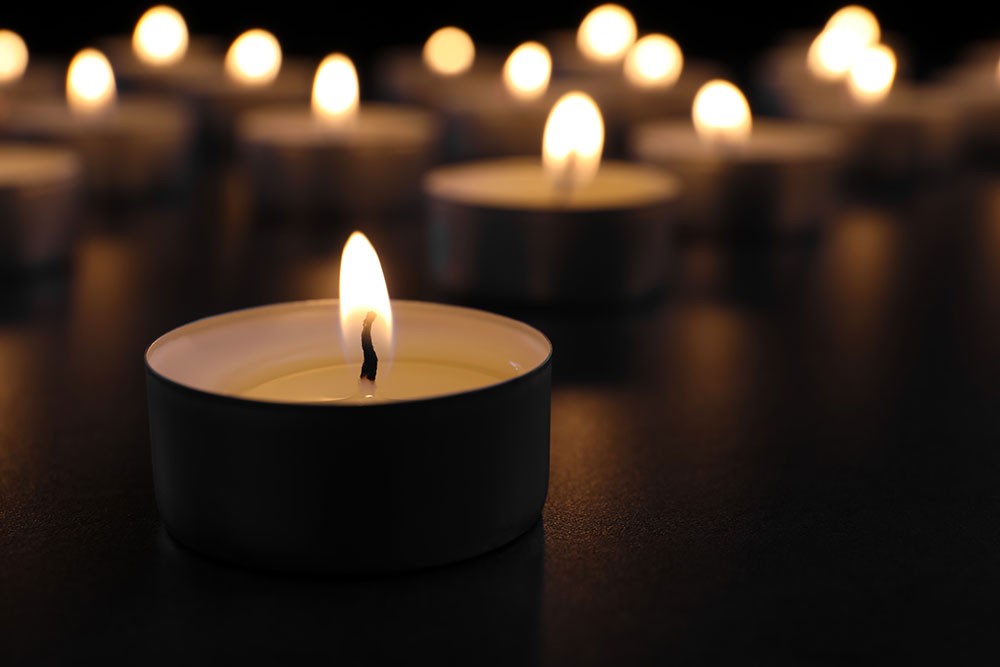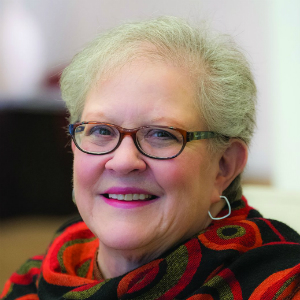As I researched for the May 2019 edition of Friday With Joan and thought about my own experiences, I thought of all the ways we have not taught people how to express feelings to someone grieving—expressions that are appropriate for that individual.
The worse thing I found was that bereavement policies across the corporate and association spectrum differ very little: they are, in my opinion, too short and too narrow in the scope for whom people are permitted to take PTO (paid time off) when a death occurs.
Most are for immediate family and few include those who are in non-married partnerships; some do not consider cousins, aunts, uncles or in-laws family and for those of us with “fur babies,” there is not a chance in the world they’d be included in bereavement leave.
(I did not check with any animal rights organizations and if someone reads this and is an employee of one, please post below if your policy does cover pets or email me at FridayWithJoan@aol.com if you’d prefer that you or your employer not to be identified).
I am grateful to the many people who sent in their employers’ policies. The maximum number of days that I saw in the policies I reviewed were five.
In conversation with Bruce Elliott whose career is in human resources, I learned that it is only in the recent past that employees were given the discretion of PTO versus specific bereavement leave after a death.
Then too, one must use that PTO for many other events like vacation or illness.
Why, I asked, Bruce, is bereavement leave so stingy? You’ll have guessed it—if we are taking time off and being paid, we are not an asset to the bottom line. Yet, I know few people who are grieving who are productive when someone they love is sick and dying or after a death. It has taken me weeks to even be somewhat more productive after the death of three friends.
If I worked for someone else, I’d have not been able to take any time off.
It makes no sense to me. In days past, many people lived near families.
Now, we live elsewhere and have both families-of-choice where we live and family scattered around the world. Five days—though the most common was three—is not enough time to travel, attend a service, spend time sitting shiva or being with others, and return.
Once back, it is rare that we can concentrate so deep is our grief.
Of the friends who died, I asked some closest to them for their input.
Molly, daughter of my friend, Chris:
JE: Did your Mom at any time discuss with you or your siblings what, when she died, she wanted the end of life observance to be?
Molly: The only thing I’ve ever been sure of about my Mom’s funeral is that “Be Not Afraid” and “Eagles Wings” should be sung, but we never discussed her wishes directly, and I’m a little bit sad for that. I do think my siblings and I did a pretty good job of ensuring her viewing, funeral and lunch reception were a good reflection of our Mom, but we guessed at a lot and knew she’d understand.
Planning a funeral can be like planning a wedding without the couple getting married. I’m not religious but was grateful to have the structure of funeral mass to get us through.
JE: How were your own employer’s policies and those of your spouse on bereavement versus what you needed?
Molly: When I looked in my HR handbook and saw I was officially entitled to three bereavement days, I laughed because it seemed like a sick joke.
But the culture at my organization is very family-friendly, and my boss was very empathetic since her own mother died recently.
I was urged to take as much time as I needed for as long as I needed, including half days.
This sense of understanding and flexibility was exactly what I needed—more than larger allotment of official bereavement days.
JE: How you are managing grief and being back at work?
Molly: I’m not sure. It’s been just over a month since I’m back and work and sometimes the clear to-do lists of work are a helpful escape from the vague free-floating physical and emotional symptoms of grief. On the other hand, I’m also being a bit half-hearted when it comes to some of my projects. I’m trying to take more deliberate breaks in my day to emotionally vent and then regroup. I’m not really sure if It’s doing much good.
I’m tired and will be taking a real vacation with my family in a few weeks. I think that will be helpful—not traveling for work or settling Mom’s affairs, just traveling for the joy of it.
Dan, son of my friend Chris in response to similar questions to Molly:
Dan: I was between jobs when Mom became ill, so the work question does not apply to my situation.
Mom conveyed her burial wishes and services through a will, thank God; doing that made all the arrangements very matter-of-fact. Without the will we would have been searching for consensus [among the siblings]. Mom was a much more devout Catholic than any of us. Our funeral director knew mom and was excellent even though I’m not a fan of the funeral industry.
We all grieve differently. Right now I’m trying to stay busy. I started a new job. I believe that sadness, self-pity and repetitive-mourning are neighborhoods in my brain where I can choose to hang out or to not hang out. I try and redirect my thoughts to gratitude and appreciation.
Mom lived the most beautiful life. She loved deeply and often; she prayed daily; she rejoiced with nature; she continually gave of herself for the betterment of others. Mom was the brightest bulb in my chandelier of life and her passing has made my world a little less bright.
And, we must live! We must move forward! We must do as she would want us to do.
One note: I’m a recovering alcoholic and I’ve often said that there are only two reasons I’d ever consider drinking again. One was the sudden passing of Mom.
I’d, then, qualify that statement by saying I’d cross that bridge if I ever got there.
AA has been my rock throughout the grieving process. I’ve vented and cried at a lot of meetings, especially right after her passing. Crying and laughing with the people who showed up to her viewing was also critical in the acceptance and healing process.
We talked with people who knew us as children that we hadn’t seen in 30+ years. Them showing up was HUGE and will never be forgotten!
Trish, daughter of my friend Chris in response to similar questions:
As far as informing me ahead of time about Mom’s wishes, we never really talked about it in specifics. At the time of my mother’s death I was working three jobs. I worked two days a week fulfilling a radiology contract at a doctor’s office, one day at an outpatient radiology and surgery center, and was training for a PRN (as needed) position for a large hospital.
While all of these pay decently, none of them come with benefits due to my PRN status. The radiology company and the outpatient surgery center were extremely understanding as I had worked for them for a while.
Unfortunately, I was in my orientation period at the hospital which meant that if I called off, I could be terminated. However, my managers were kind and understanding. They allowed me to take the days off that I needed. If they had not had that discretion—which a previous hospital I worked at did not allow the managers to have—I would have been automatically terminated per policy. I did have to take the time off without pay since I don’t get benefits.
I am on a tight budget, so that made it difficult. I had to go back and work some days in between planning things and the showing. That meant that I was driving back and forth from (home and the hospital), (an hour each way).
Fortunately, my siblings could do things without me.
If I would have been at my old job, I would have been allotted 3 days for bereavement. That would not have even been enough time to deal with all the things necessary—meeting with the funeral director one day, meeting with the church another, getting clothes for all the family members to wear, the showing, the funeral, etc. Because my partner and I aren’t married he got no bereavement. His company’s policy only applies to immediate family.
He had to switch shifts in order to be at the showing and funeral. Those policies make me think of who we get to grieve—if a close friend, a cousin, aunt or grandparent died you can’t go to the funeral? When my 19-year-old nephew died, I worked at a social service agency.
He wasn’t an approved family member under my organization’s bereavement policy. Also, three days really wasn’t enough for an out-of-state funeral.
It was so much, so quickly. We really didn’t have any time to grieve. I do wish I had more time especially with my kids to help them grieve. One told me when she got back to school (the day after the burial), she was in a fog. It took her two weeks to realize she was depressed.
I was working so much I didn’t get to check in on her as much as I would have liked.
Related Reading From the May 2019 Edition of Friday With Joan
- Where Life, Death, Grief and Hospitality Connect
- Q&A With End-of-Life Event Planner Alison Bossert
- Life Lessons From an End-of-Life Event Planner
- What's Your Take? May 2019 FWJ Poll
Click here to view additional content in the 05.03.19 Friday With Joan newsletter.




